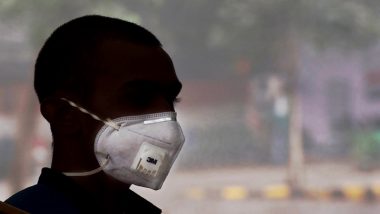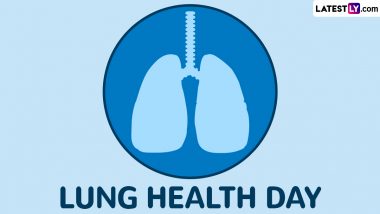Till the world has a vaccine, we are going to live with COVID-19. As the government slowly eases the lockdown, it is crucial to wear a mask along with following social distancing rules to prevent the spread of the virus. While face masks give you the protection, they also make it difficult for you to breathe. Some people fear that wearing masks for a longer time would lead to hypercapnia, or too much carbon dioxide (CO2) in the bloodstream. Here are some tips to support your lungs and make breathing easy with the mask on.
Can Wearing a Face Mask Affect Your Breathing?
The lungs allow for the exchange of oxygen and carbon dioxide, but since face mask covers the nose and mouth, you might find it difficult to breathe. Wearing a mask can also trap carbon dioxide, which can be dangerous for people who are CO2 intolerant. Carbon dioxide retention may cause rapid heartbeat, shortness of breath, flushed skin, confusion, headaches, and dizziness. That said, the risk of carbon dioxide retention is less unless you wear a tight mask for a prolonged period. You are at a little to no danger of CO2 inhalation when you put on a cloth or a surgical mask. Should You Make Toddlers and Babies Wear Face Masks during COVID-19 Pandemic? Here's How to Keep Infants Safe from Coronavirus Outside Home.
Tips To Strengthen Your Lungs
Increase your metabolic activity: When you exercise, your muscles require less oxygen to move, and produce less carbon dioxide. Increasing your metabolic activity is crucial, and you can increase metabolic activity through running, strength training exercises and picking up weights. Is Wearing a Face Mask Making Your Skin Dry and Giving You Acne? Here's What You Should Do to Soothe Your Irritated Skin.
Work on your posture: Did you know that specific postures can interfere with your respiration? Stand or sit straight while lifting your chest and opening the front of your body. Take deep breaths and remember never to hunch over.
Work on your breath: Practice diaphragmatic breathing and belly breathing, and simple deep breathing to reach your lungs to full capacity.Count how long is your natural breath and slowly exhale. Do this until you can comfortably fill and empty your lungs. This will increase your carbon dioxide tolerance and your ability to wear a mask.
Stay hydrated: Staying well-hydrated is exceptionally crucial for respiration. Drinking water throughout the day can keep mucosal linings moist in your lungs and help it function better. CDC Recommends Use of Cloth Face Masks amid Coronavirus Outbreak: COVID-19 Prevention Tips You Should Know.
Bottomline
Breathing in excessive carbon dioxide can be dangerous; however, the risk of becoming hypercapnic from cloth masks is low. If you notice dizziness or fatigue from prolonged use of face mask, remove it and take in the fresh air.
(The above story first appeared on LatestLY on May 19, 2020 12:52 PM IST. For more news and updates on politics, world, sports, entertainment and lifestyle, log on to our website latestly.com).













 Quickly
Quickly




















